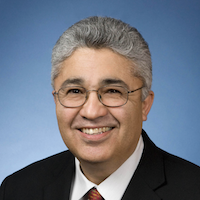
Help People by Creating Great Healthcare Experiences
09/23/2019 06:00AM | 4101 viewsBy Kim Perez
You don’t have to be a doctor to help people through their most difficult medical crises. There are many ways to shape people’s experiences as a patient.
Did you know that someone is in charge of orchestrating everything you experience?
At City of Hope, that someone is Tony Padilla.
City of Hope is a world-renowned comprehensive cancer center and independent biomedical research institution near Los Angeles that offers a unique blend of compassionate care and research innovation. As Vice President of Patient Experience, Padilla oversees a team in charge of taking a big-picture view of every phase of your experience with City of Hope
- from setting up an appointment,
- to meeting the nurses and doctors,
- to creating a treatment plan,
- to the food you eat while under care,
- to receiving care and follow-up instructions,
- through recovery …
- and dozens of other experiences in between.
“We have a strong legacy of delivering outstanding, compassionate care. We make sure that patients and their families always feel cared for and supported through all of their experiences with City of Hope,” said Padilla. “From our doctors and our researchers, those in charge of our facilities and the food you eat – every single individual plays a role in providing compassionate, patient-centered care.”
He focuses on creating the systems and enhancing the organizational culture that drive a seamless experience for every patient across all of City of Hope’s 30+ locations in their clinical network.
City of Hope’s ultimate goal is that every patient and their family members receive the highest level of care, and that every interaction is supportive, compassionate, and causes zero avoidable suffering.
Right now, one of his priorities is to make sure all City of Hope facilities are world-class, welcoming environments of care. He also aims to ensure that all clinical staff have the service and communication skills to make every patient and family feel welcome.
Padilla has been in healthcare since 1983. He started as a financial counselor in the admissions office at UCLA Health, which was not a good fit for his skills.
Then he was promoted into a role where he had direct contact with patients, kindling his interest in providing an outstanding patient experience. He relished being able to be an advocate for patients.
“I found my way into a field that is perfect for me, ” said Padilla.
His advice to younger professionals: your career path doesn’t have to be linear. “It’s okay to explore and try different jobs. You’ll find what you’re good at and what drives you and gives you some passion in your work.”
At UCLA Health he was responsible for interpreter services, volunteer services and measuring patient satisfaction. He moved up through leadership roles to become Chief Patient Experience Officer for UCLA Health, then was named Senior Director of Patient Experience for UCHealth in Colorado, before joining City of Hope in December 2018.
“We’re here to help people with cancer and diabetes, and to come up with the cures of the future,” said Padilla. “The focus is so clear. It’s a great place to come work every day.”
At same time, he said, City of Hope is growing quickly and that means Padilla and his team need to make sure the organization is evolving to accommodate that growth.
Ensuring great patient experiences is especially important for Hispanic patients: more than one-fourth of Hispanic adults in the United States lack a usual healthcare provider, according to a 2008 Pew Research Center report. Separately, writer Amanda Machado explored why many Latinos (as she put it) “dread going to the doctor” in this 2014 article for The Atlantic. She found that aside from obvious obstacles like finances or lack of health insurance, there are reasons that are much more nuanced – a tradition of privacy and individual pride, along with lack of trust when doctor-patient interactions feel rushed and impersonal.
That’s why it’s so important to create the right patient experience and a system that helps deliver that experience as consistently as possible. Padilla also encourages people to speak up when they’re not getting what they need:
- Ask questions if you don’t understand what the doctor is saying
- Request different food options or language services if needed
- Say something if you observe a change in yourself or a family member
In other words: advocate for the kind of experience you need.
Founded in 1913, City of Hope is one of only 49 comprehensive cancer centers in the nation, as designated by the National Cancer Institute. Its main campus is in Duarte, just outside of Los Angeles, and the organization also includes locations across the Southern California counties of Los Angeles, Ventura, Riverside, Orange and San Bernardino.
“The strength of City of Hope is that it has fantastic leadership with great vision, and an amazing cohort of scientists, clinicians and staff members who are all focused on that vision,” said Padilla.
As Padilla put it: “That’s what makes it so rewarding.”






Post your Comment
Please login or sign up to comment
Comments